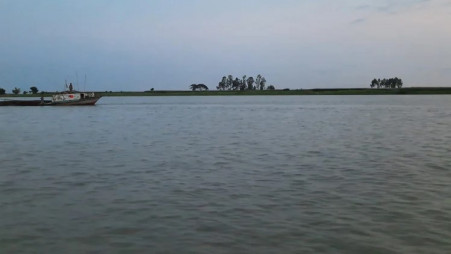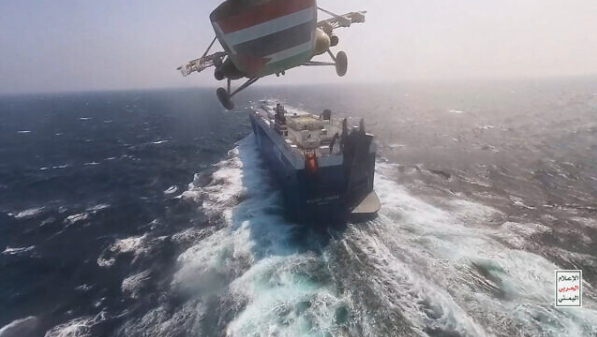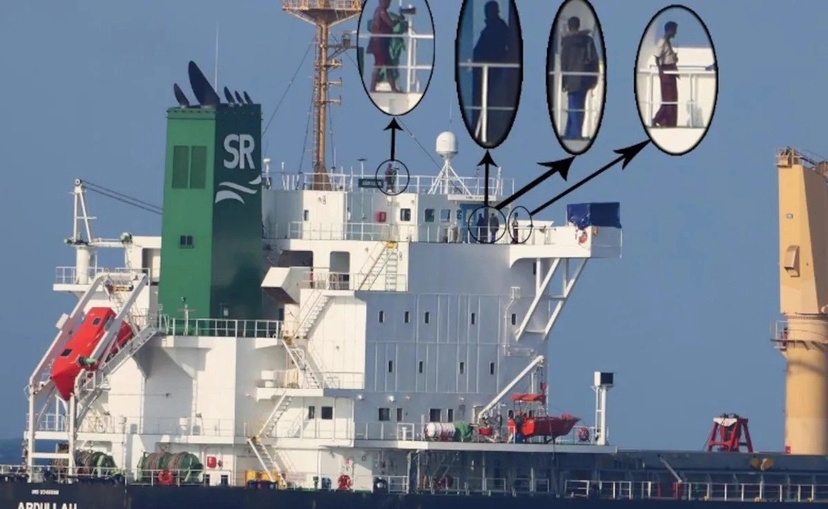Staff Reporter:
Somali pirates are making a comeback to threaten some of the world’s busiest shipping routes, driving up freight costs, and almost all the credit goes to the Yemen-based Houthis for diverting West’s attention with relentless maritime attacks to defend war-torn Gaza.
The threats are not as high as in the 2008-14 crisis, but the risks are steadily growing.
More than 20 attempted hijackings since November have driven up prices for armed security guards and insurance coverage and raised the spectre of possible ransom payments, according to five shipping industry representatives.
It is worth noting that each year, an estimated 20,000 vessels, carrying everything from furniture and apparel to grains and fuel, pass through the waterways off Somalia. The vessels traverse Gulf of Aden on their way to and from the Red Sea and Suez Canal, the shortest maritime route between Europe and Asia.
Two Somali gang members have told Reuters they are now taking advantage of the distraction provided by Houthi strikes several hundred nautical miles to the north to get back into piracy after lying dormant for nearly a decade.
A decade back the pirates conducted a prolonged series of raids in 2008-2014. Since 2015, their activities waned as global shipping companies boosted security measures on board, and international navies joined anti-piracy operations.
But, the Gaza war has handed them a shortcut back to the old daring days, and become a resurgent worry for global shippers as well as navies.
Their latest victim was a Bangladeshi-owned bulk carrier sailing in the western Indian Ocean.
The pirates boarded the vessel MV Abdullah and took the captain and second officer hostage, as none could reach the ship in time to respond to distress calls.
“By the grace of Allah no one has been harmed so far,” Chief Officer Atiq Ullah Khan said in a message, recorded before the pirates took the crew’s phones. The company shared the recording with Reuters.
A week later, the Abdullah is anchored off the coast of Somalia.
The raids are particularly concerning at this time when shipping companies are also contending with repeated drone and missile strikes by Houthi militia in the Red Sea and other nearby waters.
“They took this chance because the international naval forces that operate off the coast of Somalia reduced their operations,” a pirate financier who goes by the alias Ismail Isse has told Reuters.
Security experts say there is no evidence of direct ties between the Houthis and Somali pirates, though Isse said the pirates had been inspired by the militia’s attacks.
As the Houthis keep Western forces busy in and around the Red Sea, The Indian Navy has stepped in deploying at least a dozen warships east of the Red Sea.
Cyrus Mody, deputy director of the International Chamber of Commerce’s anti-crime arm, said the Indian intervention, could have an important deterrent effect.
“This intervention does show that the risk/reward is very much against the pirates, and hopefully that will make them think a few times over,” he said.
Over the weekend, the Indian Navy intercepted and freed the Ruen, which was sailing under Malta’s flag, after it ventured back out to sea. The European Union’s anti-piracy mission, EUNAVFOR Atalanta, said the pirates may have used the ship as a launchpad to attack the Abdullah.
A Bangladeshi foreign ministry official, however, told Reuters the government was “not in favour of any kind of military action” to free the Abdullah. The official, who asked not to be named to discuss a sensitive matter, cited the pirates’ advantages when operating close to the Somali coast.
But, many fear absence of strong action could inspire a continuation of daring attacks.
“If we do not stop it [Somali piracy] while it’s still in its infancy, it can become the same as it was,” Somali President Hassan Sheikh Mohamud told Reuters last month at his highly-fortified art deco palace, Villa Somalia.










































